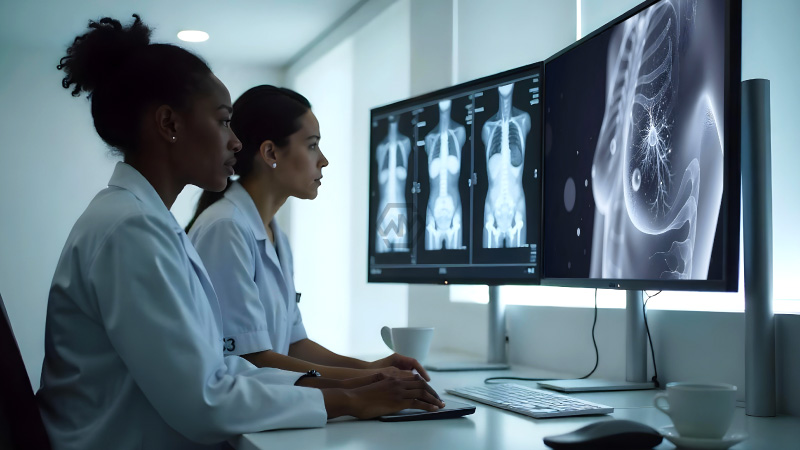- AI-assisted screenings improved cancer detection rates by 17.6% compared to traditional methods.
- Real-world study analyzed 462,000 screenings across Germany.
- AI reduced radiologists’ workload while maintaining accuracy and minimizing false positives.
The integration of AI into breast cancer screenings has proven to be a game-changer, as evidenced by a groundbreaking study involving nearly half a million women in Germany. Radiologists who utilized AI tools detected breast cancer at a rate of 6.7 cases per 1,000 screenings—significantly higher than the 5.7 per 1,000 achieved without AI assistance.
AI’s “safety net” feature played a crucial role in flagging cases that radiologists initially missed, leading to over 200 additional diagnoses. Beyond improving detection rates, AI streamlined workflows by accelerating the review process for scans deemed normal.
Breast Cancer Screening Enhanced: AI’s Role in Detection and Efficiency
A real-world study conducted in Germany has validated the impact of AI in breast cancer detection, involving 461,818 women screened between 2021 and 2023. AI-assisted radiologists detected 17.6% more breast cancer cases than their counterparts who relied solely on traditional methods. This marked improvement underscores the transformative potential of AI in healthcare.
The AI tool’s “safety net” feature flagged suspicious scans initially dismissed by radiologists, preventing over 20 potential missed diagnoses. By highlighting key areas for further examination, the tool served as a second line of defense, increasing diagnostic confidence while maintaining similar recall rates for additional testing.
Efficiency gains are another major advantage. By rapidly identifying normal scans, AI allowed radiologists to focus their expertise on complex cases, reducing their overall workload. This capability is particularly valuable in systems facing staff shortages, such as the UK’s NHS, which reports a 29% shortfall in radiologists.
Critics, however, caution against the overdiagnosis of slow-growing cancers, which might not require immediate intervention. Experts emphasize the need for long-term studies to balance early detection with clinical relevance, ensuring that AI benefits patients without creating undue burdens.
AI is revolutionizing breast cancer screening by improving detection rates, streamlining workflows, and reducing workload. With continued oversight and research, it promises even greater healthcare advancements.
“Any tools that can boost our accuracy and productivity are welcome.” — Dr. Katharine Halliday, President of the Royal College of Radiologists



